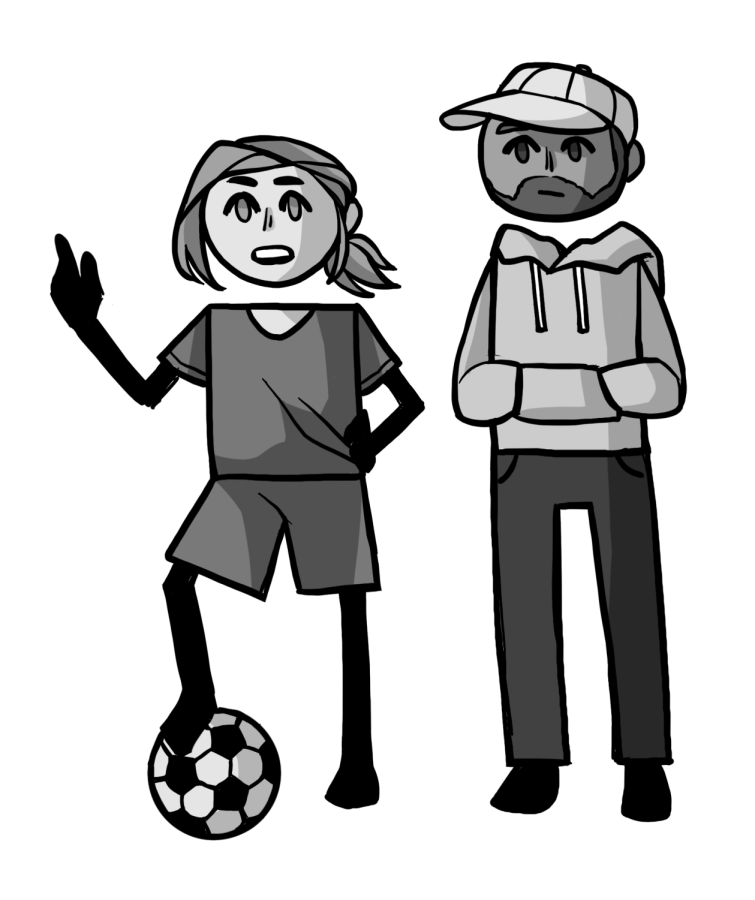SPORTS: SCHS athletes support their teams through captain roles
As many high school sport teams require various forms of leadership and encouragement, SCHS soccer captains expressed their leading traits and qualities. While some feel the pressure to maintain both a leadership and athletic role within their sport, they all strive to help every athlete on their team.
Varsity soccer captain, junior Aliana Ferreira, mentioned the routine of a team captain and described her communication toward the rest of the team.
“We get practice going. We set up all of the drills. We talk to the girls if there’s problems,” Ferreria said. “We’ll be like, ‘Do you guys need help with this?’ Just being there, not just as a captain but also as a teammate.”
Ferreira mentioned that her recent position compels her team to rely on her for support while she attempts to adjust to the season’s new norm.
“This is my first year being captain. It’s kind of different because you have to make sure you see the game how everyone sees it, and how everyone is enjoying it, not just your game mentality. How everyone is participating,” Ferreria said.
SCHS varsity soccer player and Silicon Valley club captain junior Sujay Ojha examines the role of the captain while actively playing in the game with both athlete and captain senses available to benefit the entire team.
“You’re kind of a coach on the field, so you’re taking shots because the coach can only say so much on the sideline,” Ojha said. “But you’re physically on the field and able to see everything.”
Ojha feels a captain must remind themselves of their role from time to time.
“It’s a lot more responsibility with the coaches. They know that teammates will be messing around, but then if you get involved, then they look towards you and say, ‘You’re supposed to be that role model,’,” Ojha said. “So definitely not being able to get as many things that other people are, but at the same time, it’s what I signed up for.”
Along with a captain’s self-image, Ferreira noted the importance of balancing one’s identity as both a leader and athlete under pressure during a game.
“When we are trying to get a goal and are in a time crunch, you have to be a leader first to make sure your team is ready and then also have a good athletic performance but make sure that a leader comes first,” Ferreira said.
In addition to supporting the team, Ferreria believes that supporting the individual athlete also holds value. She said she strives to maintain open communication with each player throughout the entirety of the season.
“Being very vocal with my team, like open, so they can have someone to talk to if they have a problem and just being super positive on the field because in soccer it’s stressful, so just making sure they have their head up and are doing the right thing,” Ferreria said.
Ojha emphasized the importance of leadership amongst a team and the advantage of self-dependency in which he feels best supports his own team and sport.
“I like to think of myself as an athlete because at the end of the day, everybody’s equal on the team, but also remembering that if something does go wrong or something was to happen, then you’re that role model that people tend to lean on,” Ojha said.


